President Joe Biden has announced that he will drop out of the presidential race, following weeks of pressure from Democrats following his lackluster debate performance and speaking gaffes in his public appearances since.
Biden has pledged to serve out the rest of his term and he immediately endorsed Vice President Kamala Harris as his replacement for the Democratic nomination. But it’s unclear how Democrats will officially nominate as Biden’s replacement, especially considering campaign finance laws limiting who can receive Biden’s war chest.
Related:
“It has been the greatest honor of my life to serve as your president,” Biden said in a public letter issued Sunday. “And while it has been my intention to seek re-election, I believe it is in the best interest of my party and the country for me to stand down and focus solely on fulfilling my duties as president for the remainder of my term.”
Your LGBTQ+ guide to Election 2024
Stay ahead of the 2024 Election with our newsletter that covers candidates, issues, and perspectives that matter.
Biden said he would speak to the nation later this week in more detail about his decision and thanked Harris for her “extraordinary” partnership. He offered his “heartfelt appreciation” to the American people “for the faith and trust you have placed in me.”
“I believe today what I always have: That there is nothing America can’t do — when we do it together,” he concluded. “We just have to remember we are the United States of America.”
In a follow-up post on X, Biden endorsed Harris, writing, “My very first decision as the party nominee in 2020 was to pick Kamala Harris as my Vice President. And it’s been the best decision I’ve made. Today I want to offer my full support and endorsement for Kamala to be the nominee of our party this year. Democrats — it’s time to come together and beat Trump. Let’s do this.”
However, it’s unclear what protocol the Democratic party will use to select Biden’s replacement. Biden won the vast majority of his party’s delegates in the Democratic primary earlier this year, getting over 14 million votes. These delegates would have voted to officially nominate him at the Democratic National Convention, which will be from August 19 to 22. However, it’s unclear whether these delegates will simply switch their votes over to Harris now or whether other challengers will step up to contest an open nomination process.
This prospect is complicated by the fact that mail-in ballots will go out to voters in September – mere weeks after the convention – leaving little time to decide in time to print new ballots. Also, Republicans could try to sue to keep a new nominee from appearing on any state’s ballots at all, according to Rep. Alexandria Ocasio-Cortez (D-NY).
Campaign finance laws restrict the transfer of political donations that Biden has already accepted. Because Biden and Harris share a campaign committee, she can access all of the funds immediately, according to Federal Election Commission rules.
However, the Biden campaign couldn’t legally contribute all of its campaign money to a new candidate, according to Saurav Ghosh, the director of federal campaign finance reform at the Campaign Legal Center.
“[Instead] Biden’s campaign would have to offer to refund the money to donors, who could then contribute to the new candidate’s campaign,” or “transfer an unlimited amount to the DNC, which could then spend the money supporting the new presidential nominee, and up to $32.3 million of that spending could be coordinated with the new nominee,” Ghosh told U.S News and World Report.
Vice President Kamala Harris
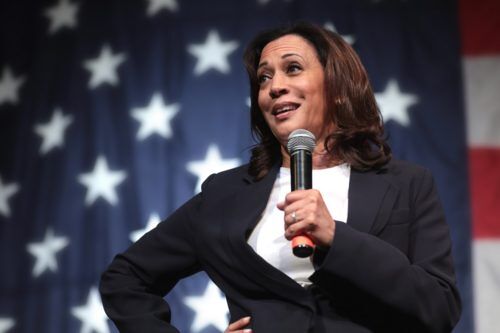
In 2003, Harris was elected as the District Attorney of San Francisco. In 2010, she was elected as California’s Attorney General, the first woman and the first African American and South Asian person to hold the position. In 2016, Harris was elected to the U.S. Senate.
Harris has been a vocal advocate for LGBTQ+ rights throughout her career, consistently supporting policies that promote equality and inclusivity for the queer community. Harris has the longest history of supporting same-sex marriage out of any Democratic candidate, having officiated gay weddings as far back as 2004. She was cited alongside President Biden as supporting trans kids in a lawsuit concerning their rights to play on sports teams matching their gender identity.
Harris has publicly opposed Don’t Say Gay laws. In an op-ed published with LGBTQ Nation, Harris detailed her commitment to LGBTQ+ discrimination protections. She opposes conversion therapy, has addressed violence against transgender individuals, and supports addressing homelessness among LGBTQ+ youth.
However, she also has a complex history regarding state funding for transgender inmates’ gender-affirming care.
California Gov. Gavin Newsom
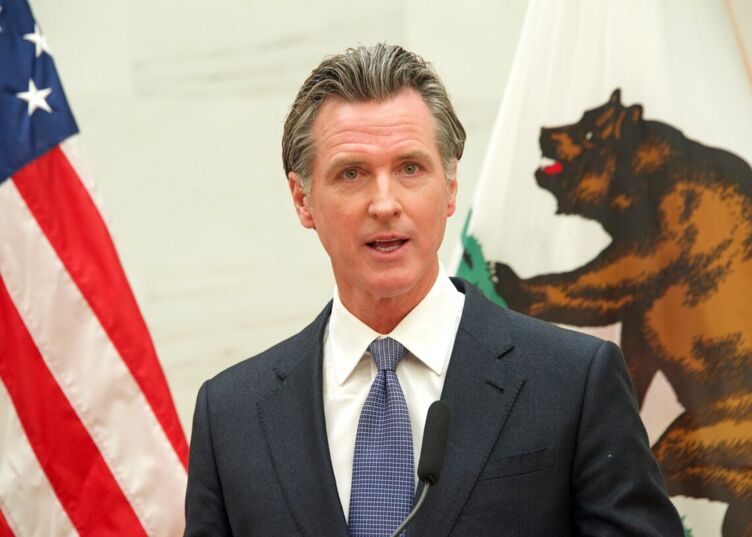
California Gov. Gavin Newsom has served as the lieutenant governor and then governor of the largest state in the country since 2011, and before that, he was the mayor of San Francisco — few Democrats have as much executive experience as he does. Moreover, his debate with Florida Gov. Ron DeSantis (R) earlier this year showed that he can be a strong advocate for Democratic principles.
Newsom has a strong record on LGBTQ+ issues, both at the city and the state levels. Most famously, he started issuing marriage licenses to same-sex couples in 2004, years before the state and the rest of the country would recognize marriage equality. As governor, he has signed multiple pieces of legislation advancing pro-transgender rights.
He has repeatedly denied any interest in replacing Biden, but things might change now that Biden has officially dropped out.
Transportation Secretary Pete Buttigieg
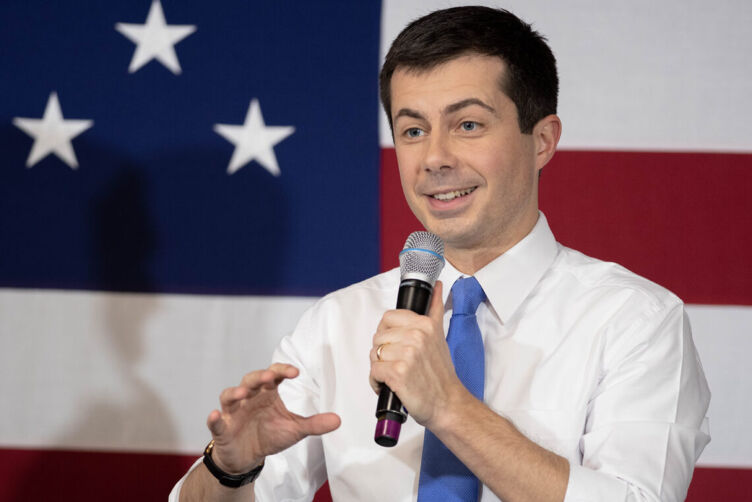
Out Secretary of Transportation Pete Buttigieg already has a presidential campaign under his belt and a lot of Democrats really seem to like him. A poll from earlier this month showed him beating other potential replacements, including Harris, Newsom, and Whitmer, in crucial swing states.
Buttigieg established himself as a mayor who cares about practical solutions to real problems during his tenure in South Bend, Indiana, and also as a strong spokesperson for the Biden administration during his time as secretary of transportation. If he’s on the ticket – either at the top or as running mate – he would be the first out LGBTQ+ person to be a major party’s nominee.
Michigan Governor Gretchen Whitmer
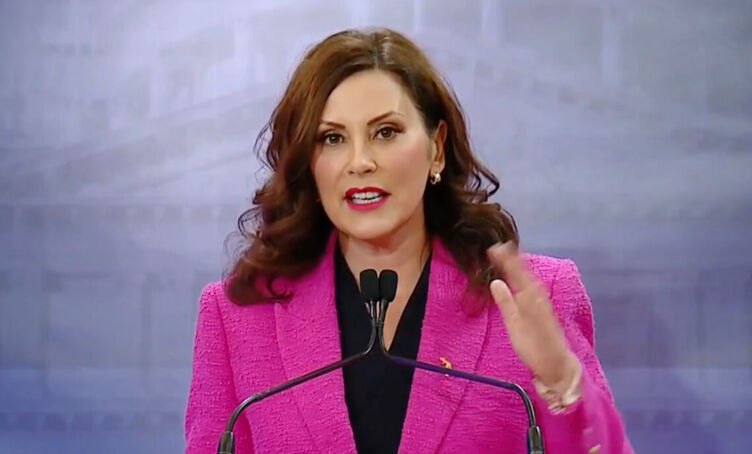
Michigan Gov. Gretchen Whitmer has served in elected office since 2001 and became governor in 2019. She has shown the ability to win in statewide elections in the Midwest, a crucial region for Democrats in the past few presidential cycles. In 2022, when she was running for reelection, she led her state party to an even bigger victory where they turned both chambers of the state legislature blue.
Whitmer is solid on LGBTQ+ issues, signing multiple pieces of pro-LGBTQ+ legislation into law, including a bill expanding civil rights protections to include LGBTQ+ people and a ban on conversion therapy.
While she hasn’t shied away from saying that she plans to run for president in 2028, she denied having any interest in replacing Biden when asked about it earlier this month. Of course, now that he has actually dropped out, that might change.
Pennsylvania Governor Josh Shapiro
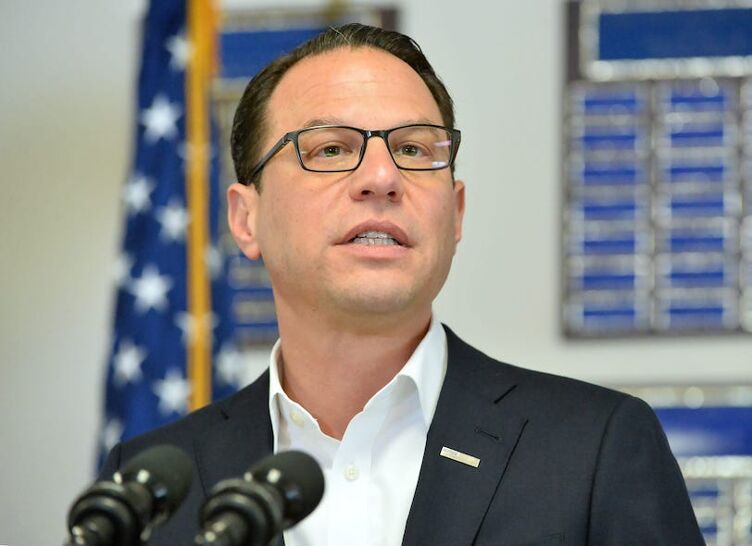
Pennsylvania Gov. Josh Shapiro was elected in 2022, and before that, he served as the state’s attorney general since 2017. As the governor of a large swing state, he could have an advantage, bringing in much-needed electoral votes. He has also established a reputation for working across party lines.
After he was elected governor, the LGBTQ+ organization HRC congratulated him, citing his record on transgender rights as attorney general, including standing up to the Trump administration when it banned trans people from serving openly in the military. He also called for an end to the ban on gay and bisexual men donating blood.
Shapiro recently stood by Biden as the nominee when asked about possibly replacing him in the presidential election.
Illinois Governor J.B. Pritzker
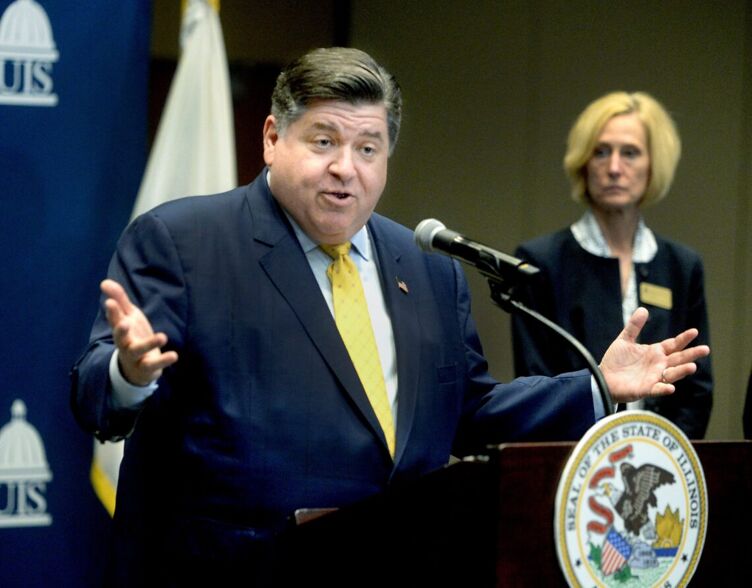
Billionaire Illinois Gov. J.B. Pritzker has been floated as a potential replacement for Biden. His prowess as a fundraiser and his solid record on progressive issues, including abortion rights and gun control, have made him a favorite for some Democrats.
He’s also solid on LGBTQ+ issues. As governor, he made Illinois the first state to ban book bans, and he declared Illinois a sanctuary state for IVF services shortly after the Alabama Supreme Court ruled against the practice. In his 2022 campaign, he attacked his GOP opponent for comparing gay people to “child molesters or rapists.”
Unlike some of the other candidates, he lacks national name recognition. In one poll in early July, he placed sixth among Democrats to replace Biden, behind Michelle Obama, Harris, Newsom, Whitmer, and Kentucky Gov. Andy Beshear.
Don’t forget to share:

